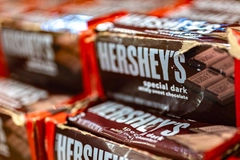
- Industry news
Industry news
- Category news
Category news
- Reports
- Key trends
- Multimedia
- Journal
- Events
- Suppliers
- Home
- Industry news
Industry news
- Category news
Category news
- Reports
- Key trends
- Multimedia
- Events
- Suppliers

Sidel responds to the growing demand for quality labeling with a highly innovative, efficient, flexible and sustainable proprietary PSL unit.
Dec 5 2011 --- From Sidel’s R&D-Department straight to Brau Beviale in Nuremberg, November 9-11: The new Pressure-Sensitive Labeling (PSL) Unit for beer that was successfully field tested at Spendrups, Sweden, uses ultra-thin films, promising customers cuts in Total Cost of Ownership (TCO) and a rapid return on investment (ROI) without neglecting sustainability.
In most cases, labels are the first visual and tactile contact customers make with a product. In a world of increasingly sophisticated consumers, sometimes the label of a product makes the difference. Sidel responds to the growing demand for quality labeling with a highly innovative, efficient, flexible and sustainable proprietary PSL unit. It has two main applications. It can either be added to a larger aggregate that also incorporates cold glue applications, or it can be installed on a standard Pressure-Sensitive-Labelling machine.
Benefits for the customer, benefits for the environment
Compared with its predecessor, the structure of the new PSL unit has become more rigid and stable. The adjustable support, made to match any container shape in order to significantly reduce vibrations, improves the final application quality. The possibility of using ultra-thin films as liner in the new labeling unit is the real breakthrough: Films as thin as 12µm PET still guarantee the same performance as is normally obtained with a 24µm liner. This is due to four brushless motors at four focal points (reel unwinder, air buffer, push-pull and rewinder), ensuring perfect control over the tension of the film. Using such thin films means less waste, lower costs and greater flexibility. Constant control of film tension also offers numerous other benefits, ranging from greater label stability to a very low risk of any kind of damage and the utmost precision in positioning: top quality performance at extremely high speeds.
“We were really impressed with this new technology from Sidel. Right from the start of installation, the PSL ran very well, and results were beyond our expectations in terms of labelling quality. Both the efficiency of the machine - 50,000 bph - and its robustness confirmed that we made the right choice. As a consequence, we never considered the PSL Unit to be a prototype but rather an industrialized machine already,” states Mr. Kim Pedersen, Senior Project Manager at Spendrups, the first user of the new PSL technology.
Greater dependability and flexibility
Direct drive motors with no mechanical transmission avoid normal wear due to contact between gears, resulting in a drastic reduction in maintenance and lower risk of human error. Electronic operation also makes it possible to add special variable parameters to the recipe which the customer can keep under control at all times; the best guarantee of all the flexibility required by increasingly refined labeling techniques. Real time control of all stages in the labeling process by brushless motors guarantees continuous complete feedback.
The structure of the new labeling group is highly ergonomic and provides the operator with easy access to all components, making format changeovers simple and quick. The machine’s footprint is also designed to permit close-up control at all stages in the process. Kim Pedersen adds: “We also appreciated the ergonomics and compactness of the PSL Unit, since we did not have enough space in our bottling hall to invest in a new labelling machine.”
Non-stop labeling
In both standard labeling machines and larger aggregates, the “Master-Slave” system can be used for two labeling units working on the same label – one active, the other on standby. When the reel of labels on the “master” comes to an end (or in the rare event that the film or substrate should break), the “slave” station automatically starts working right away, responding to one of the most important needs of labeling customers: the total absence of shutdowns at the end of the reel or due to malfunctions, maintaining speed for non-stop labeling. “This project has been successfully completed thanks to extremely good collaboration with Sidel throughout the project. Indeed, Sidel was always willing to find compromises. To ensure perfect commissioning, a lot of bottles are needed, but we couldn’t supply such a quantity all the time for the eight formats we produce on the glass line – one for Heineken and the seven others for Spendrups. Despite this constraint, Sidel succeeded in handling the acceptance test with fewer bottles anyway,” concludes Kim Pedersen.











